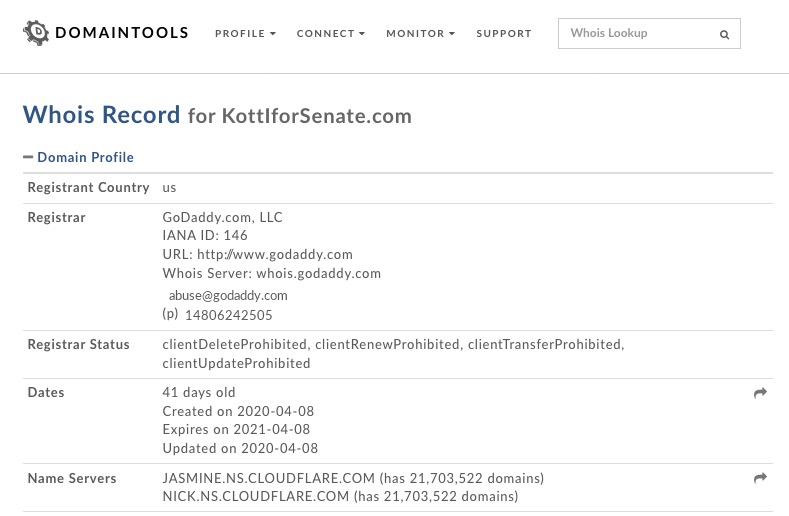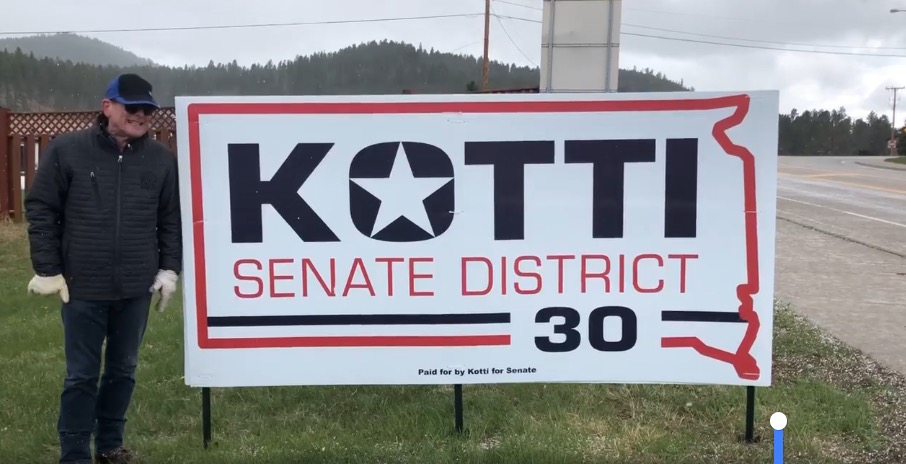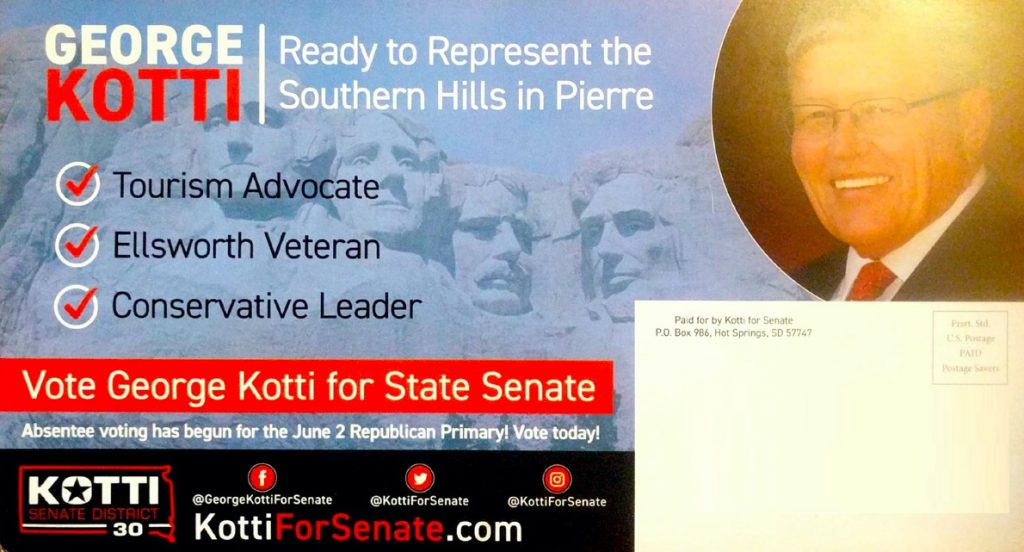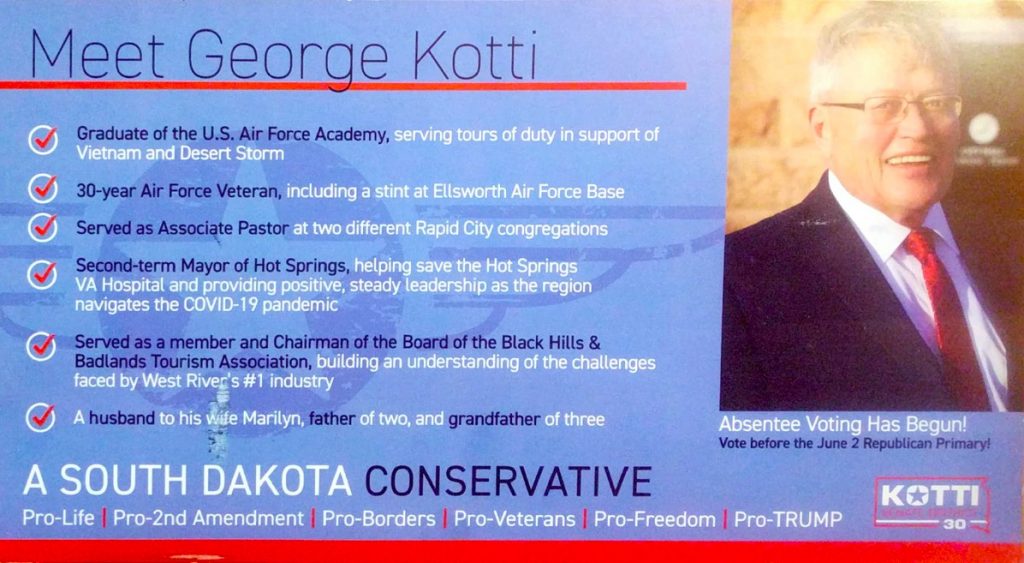Lee Schoenbeck is spending good money to oust some of his fellow Republicans from the Legislature. The Watertown lawyer and unchallenged District 5 Senator has thrown $1,000 into Erin Tobin’s District 21 campaign to block House Majority Leader Lee Qualm from advancing to the Senate. He’s also backed George Kotti with $1,000 to beat back Rep. Julie Frye-Mueller‘s similar effort to join Lee in the Senate. Schoenbeck’s fellow lawyer and notably Aberdeen establishmentarian Harvey C. Jewett IV is also in for $1,000 to each of those two of Lee’s favorites.
While they’re at it, Schoenbeck and Jewett might want to contribute a little legal advice to Hot Springs mayor Kotti. In his pre-primary campaign finance report, signed Sunday and received Monday, May 18, by the Secretary of State, Kotti reported $11,425 in campaign income through May 13 but only $45 in pre-primary expenses, all in bank fees.
That’s funny—he evidently spent good money in April buying his campaign website from GoDaddy:

Websites aren’t free. Erin Tobin reports spending $2,679.10 putting her face and slogans online. Now that’s about $2,500 more than necessary for a simple two-month website slapped together with blog tool Squarespace to handle maybe 300 hits a day. Kotti’s website probably cost more, since he enlisted Las Vegas political consulting firm McShane LLC (who also worked to foist Marsy’s Law upon us) to work up his website.

Kotti also has nice signs up around District 30, and those big road signs don’t grow on trees:

And postcards don’t print and mail themselves:


That card and sign and site all say, “Paid for by Kotti for Senate,” past tense, meaning payment happened. Those payments happened before May 13, the end of the reporting period, and May 17, the day Kotti filled out his pre-primary report. Whatever the expenses, they need to be reported, and George Kotti didn’t report them.
Contrary to the opinion of certain powerful Republicans, campaign finance laws are not trivial bureaucracy. Campaign finance laws, along with petition laws, are the basic civics test we administer to every candidate for the Legislature. If a candidate can’t figure out how to follow those relatively simple laws (which come complete with worksheets telling you exactly what information to put where), the candidate won’t be able to figure out how to write and revise those laws, let alone grapple with more complex laws, like trust laws.
Of course, Republican money men aren’t looking for astute, penetrating intellects to serve in the Senate. They are looking for yes-men who will do what their caucus leaders and the donors and lobbyists behind them tell them to do. A good Republican’s job is to get elected; the party bosses will handle the rest.
Still, the law is the law, George. When two of your best friends are lawyers tucking Benjamins in your belt, breaking the law is embarrassing for all parties. Don’t embarrass your friends, George. Report your campaign expenses.
But don’t worry, George: SDCL 12-27-27 gives you seven days after “discovering any omission, inaccuracy, or other change necessary to make the statement or report accurate” by filing an amendment. Hop to it!